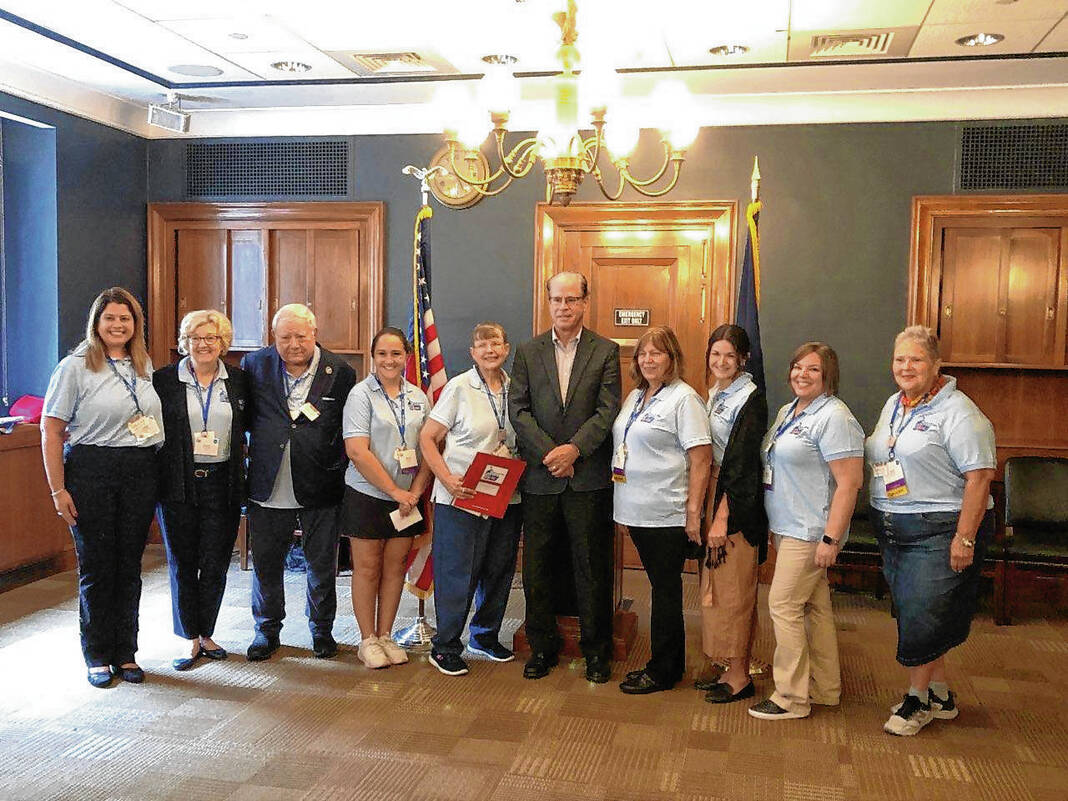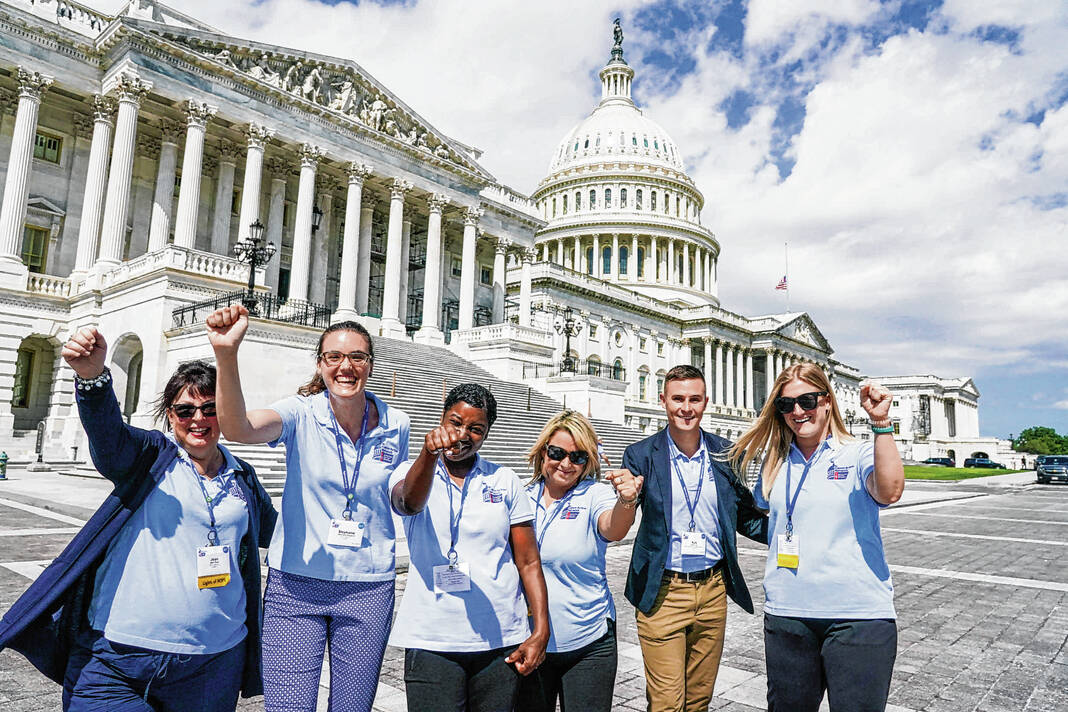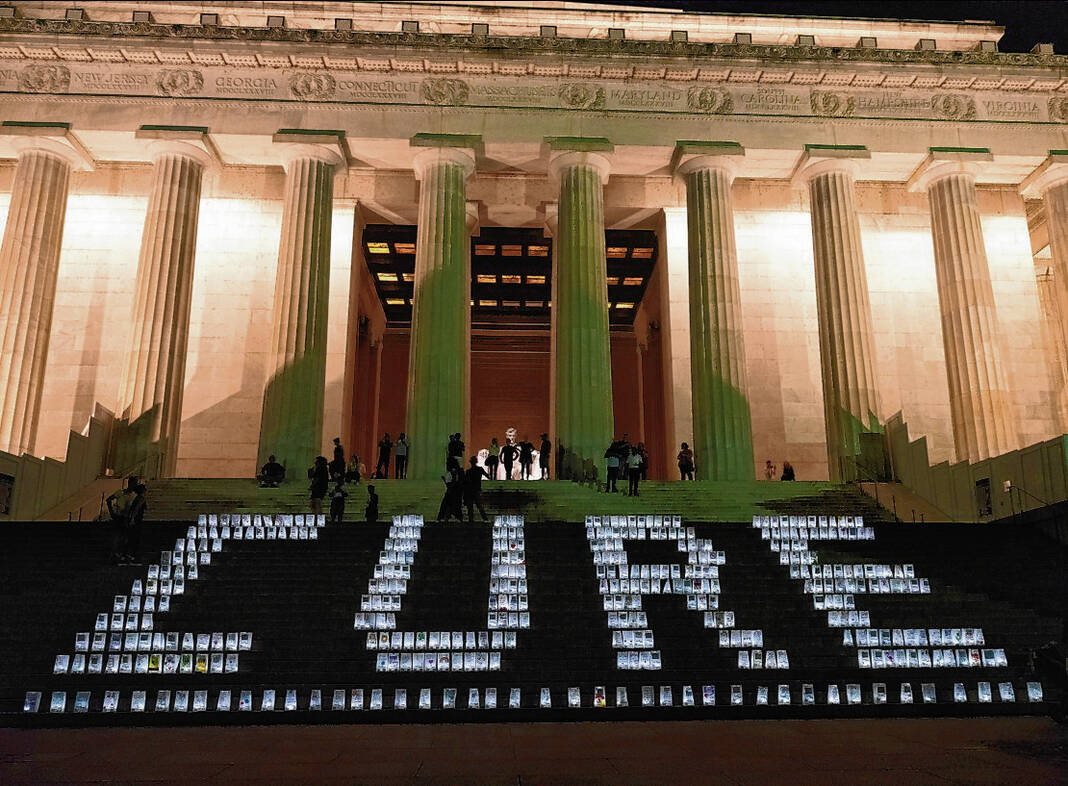Everyone is impacted by cancer’s reach.
The inescapable truth is all too familiar to Andrea Bauer. The Greenwood resident has known too many friends and family members who have been diagnosed with a form of the disease. Her father died from melanoma, and her mother was recently diagnosed with breast cancer.
She went through treatment for Stage 3 colon cancer six years ago.
“After I was diagnosed, I swore to my mom that something good would come out of it,” she said. “I believe there is a reason (the cancer) was caught early, and I think that part of what drives me is, I’m tired of losing people to diseases that are detectable and preventable and curable.”
Bauer joined more than 600 other cancer survivors in September to press national leaders for more funding for cancer research, among other topics. As part of the American Cancer Society Cancer Action Network, she met with Sen. Mike Braun, as well as staff members for Sen Todd Young and Rep. Trey Hollingsworth, to push for more federal funding, clinical trials and more access to multi-cancer early detection tests.
By using her own experience, she hoped to impress just how important these issues are for people all over the United States.
“Roughly one in three Americans will hear the words ‘you have cancer’ in their lifetime. We need a full and unwavering commitment from Congress to take action to help prevent and treat cancer,” Bauer said. “We want our lawmakers to know that volunteers from Indiana and every state across the country are counting on them to take a stand.”
Cancer kept on taking from Bauer and her family.
First she lost her father to melanoma in 2008. He had been diagnosed with Stage 4 cancer about four years prior, after a cancerous mole on his head started changing colors and shape. The cancer spread to his brain, and though he battled the disease, but ultimately lost.
Bauer was diagnosed eight years later, when doctors found Stage 3 colon cancer. They discovered the disease on a fluke; she had developed a kidney stone, and while receiving treatment for it, they found cancer.
“I had symptoms for years, but was misdiagnosed. I was told I was too young, that I didn’t have a family history, so there was no point in even trying to get insurance to cover the cost of a colonoscopy,” she said.
Surgeons removed 10 inches of her colon to remove the disease, and Bauer went through seven months of chemotherapy. In October, she will have been six years without evidence of disease.
But only a few months ago, Bauer’s mother was diagnosed with the beginning stage of breast cancer.
“We are playing what I have dubbed the ‘Bauer Family Cancer BINGO,’” she said.
After Bauer’s diagnosis, she started working as an advocate to bring awareness to colon cancer. She was discouraged that at the time, there were next to no organizations or campaigns in the Indiana area that focused on that specific disease.
“So I had to look on a more national level, rather than on a local level. Even going to any support group, it was mostly breast cancer,” she said. “There was nothing for colon cancer specifically.”
Bauer has been involved in a wide variety of organizations when she connected with the American Cancer Society Cancer Action Network. The group had reached out looking for stories of people who had colorectal cancer, and since she is vocal about her experience, she stepped forward.
The Cancer Action Network is a nonprofit, nonpartisan advocacy affiliate of the American Cancer Society that aims to hold lawmakers accountable for their words and their actions. Volunteers meet with legislators, plan events, encourage new membership, and help make phone calls for causes related to cancer and cancer patients.
At the Indiana Statehouse, Bauer spoke at the annual Suits and Sneakers cancer awareness event, asking lawmakers to reduce the screening age for colorectal cancer to 45 years old. She was also supposed to go with Cancer Action Network to Washington D.C. in 2020, until the pandemic canceled those plans until this year.
One of the network’s most visible events is the annual Leadership Summit and Lobby Day. Hundreds of volunteers gather in Washington D.C. to meet with lawmakers, learn more about cancer issues and honor those touched by cancer and remember those who have been lost through Lights of Hope — 20,000 lights lining the pond at Constitution Gardens.
“The 200 diseases we call cancer represent a leading cause of death and suffering, claiming the lives of more than 600,000 Americans this year,” said Dr. Karen E. Knudsen, CEO of the American Cancer Society and its Cancer Action Network. “We need Congress to do everything possible to tackle cancer starting with providing consistent and significant increases in federal cancer research and prevention funding. It is clear that cancer research saves lives, and that the return on scientific investment is accelerated progress and improved outcomes now and in the decades to come.”
This year’s event, held Sept. 11 through 13, went in with specific goals to highlight with lawmakers. They wanted to discuss the need to support an increase in federal funding for cancer research through the National Institutes of Health and the National Cancer Institute.
“Each of the volunteers who went out had a personal message for the lawmakers,” Bauer said. “Those two organizations are crucial when it comes to cancer research.”
Bauer and others also asked them to support increasing the diversity of participants in clinical trials. Part of that focus was having more people from a range of backgrounds and ages, to improve the impact of those trials. But another facet is making sure people from both rural and urban areas can take part.
Lawmakers could assist in that by ensuring clinical trial sponsors can cover patients’ trial-associated costs, like lodging and transportation, and provide tools to enable remote participation.
“Making sure those trials are diverse on both a multicultural level, but also multi income-bracket level. Somebody might be able to travel to Indy to do a clinical trial, but then you get into housing and food and all of that,” Bauer said. “It gets wonky.”
Finally, Cancer Action Network volunteers wanted lawmakers to support legislation to create a pathway for Medicare to cover new multi-cancer early detection tests once those are approved by the FDA.
“It was exciting, but it was also intimidating,” Bauer said. “You’re talking to people who make changes, and they hold the purse strings. But everybody has a cancer connection. You’d be very hard-pressed to find someone who has had cancer.”
Following the trip, Bauer plans to continue her advocacy work, both in Indiana and nationally. She is compelled to do so by all people who have been touched by cancer.
“I’ve lost a lot of friends in the last two years because of cancer, and knowing that their stories will live on because I will advocate for them,” she said. “For those who can’t or don’t speak up, I’ll speak up for them.”









